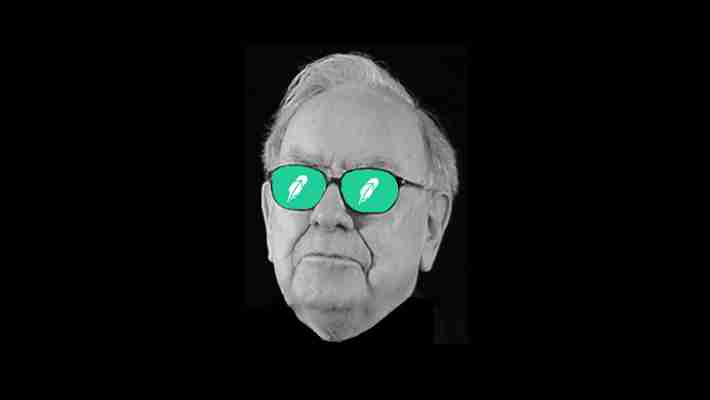Telegram has yielded to the US Securities and Exchange Commission over the sale of its Gram tokens, for now.

According to a court filing submitted earlier this week, Telegram has agreed to stop selling its Gram tokens.
“Telegram has agreed to stipulate that it will not make any offers, sales, or deliveries of its expected cryptocurrency, called “Grams,” in order to maintain the status quo until this Court can resolve the legal issues at the heart of the matter,” the document reads.
Telegram continues to disagree with the SEC over whether its Gram token is a security. As such, it says the SEC shouldn’t be able to request it to produce documents about its blockchain project.
The move comes in response to the SEC’s request for Telegram to enter into a preliminary injunction which would prevent the messaging app from selling its tokens.
By voluntarily ceasing the sale and distribution of Gram tokens, Telegram says the injunction is no longer required. As such, it’s asking the court to deny the SEC‘s motion for an injunction.
With all that said, it looks like messaging app‘s token launch won’t stick to its alleged schedule. In August, Telegram promised to start delivering the first batches of the Gram tokens to investors by October 31.
By voluntarily halting the distribution of its token, Telegram still has a bit of control over how it can recommence its plans. If an injunction were to be imposed, it could blow a detrimental set-back to Telegram’s plans.
H/T – CoinDesk
Why it’s dangerous to compare Robinhood traders to billionaire investors
Robinhood has been making headline after headline on financial media lately. Following the coronavirus market meltdown, the millennial-focused trading app has seen a surge in new users and trades. And they seem to behave completely different from seasoned and institutional investors.

Their creed? Buy the deepest dips! The hardest hit companies — especially those in the travel industry — have seen the highest increase in interest (or unique holdings among Robinhood users), according to Robintrack data. This is spanning from airlines, to cruise liners and entertainment parks (i Disney), and now even bankrupt car rental company Hertz.
Now, none of these companies have fully recovered yet, as opposed to companies in other sectors like technology and healthcare. But they did jump off of their lows somewhat, translating in a potentially larger profit when bought at their bottom, as they fell harder than companies in these other sectors as well.
Financial media are eager to point out this short-term outperformance by less financially educated retail traders. Yet, one can argue that this comparison is both irrelevant and perhaps even dangerous. Let me explain to you why.
Large-scale investors often aren’t inclined to be invested in small-cap companies
In contrast to small retail investors, large-scale investors or investment firms often don’t like to be invested in smaller, public companies. To make any impact on their overall fund’s return, they must invest large sums of money in a stock, usually billions of dollars. Sometimes these companies aren’t even worth billions. And if they are, it automatically means they will have to buy a larger stake, larger than 10%.
If you exceed that 10% threshold in ownership, by law it is no longer purely considered for investment purposes. You’re now inclined to be part of a company’s management. Furthermore, larger stakes could lead to other transparency regulations under U.S. securities rules, which are aimed at tracking management’s financial transactions. This might just be one of the reasons Warren Buffett dumped all of his airline holdings.
Large-scale investors have to justify their investment choices
Large-scale investors often either invest for clients or shareholders (like in the case of Berkshire Hathaway). This means they have to justify their portfolios not just to themselves, as is the case for single Robinhood traders. Whereas Robinhood traders can decide for themselves how much risk they want to take on, clients and shareholders of large-scale investment firms prefer steady yearly returns, and tend to have a more long-term horizon.
This also automatically means large-scale investors have to be diversified, to minimize risk. They have to diversify in different types of assets (e.g. equities, bonds, commodities), industries, territories, and risk factors like value, growth, dividend, and quality. So they can’t be as speculative and as singular as retail traders only risking their own money. An all or nothing strategy, according to Robintrack data pervasive among Robinhood users, simply isn’t an option.
Large-scale investors know more
Robinhood users are lured into the trading app with a cheap, free stock, which they also get for referring friends. This emphasizes the focus on stock picking as opposed to the less risky way of investing using ETFs and other index funds (baskets of a wide range of stocks).
Sure, Robinhood users can create their own diversified portfolios of stocks, but this requires a lot of education, and continuous research, thus time. Large-scale investors know how markets and market cycles work, how to value companies, and have access to vastly more research and (alternative) data to base their decisions on.
It’s giving new retail investors false confidence
In conclusion, short-term comparisons between Robinhood traders and large-scale investors can give both current and a lot of new retail investors the idea that you don’t need to be a financial expert to start stock picking. It incentivizes a lot of unnecessary risk.
13 YouTube channels to turn yourself from wagecuck to finance god
It seems budgeting, saving, and investing are all the rage nowadays, and that everyone’s joining the FIRE (Financial Independence Retire Early) movement. This is reflected by the increasing popularity of budgeting and trading apps, ETFs (exchange traded funds, baskets of stocks you can invest in to spread your risk), and business news sites .

But who do you turn to to learn the tricks of the trade? How does the economy actually work? How do the financial markets work? Where do you even start with getting your own finances in order? And most importantly: how can you put your money to work in this low to even negative interest environment?
You could turn to a professional financial advisor, a financially literate friend or family member, or read books on the subject, or… you could simply watch YouTube.
Now, YouTube’s got a lot of great content, but probably even more garbage. That’s why we’ve compiled a list of channels for you that are actually sane and educational when it comes to personal finance, investing, and the economy. No rip-offs, and no YouTubers without sound professional expertise giving you stock tips.
Explainers: Personal finance/investing
Two Cents is PBS’s educational personal finance YouTube channel. It offers knowledge on a broad range of subjects: how to save money (e.g. What’s the real cost of a pet?), how to avoid getting scammed, how to deal with the housing market, how to deal with debt, how investing works, and much more.
The Plain Bagel is an educational, investment-focused YouTube channel hosted by financial analyst Richard Coffin. It publishes easy-to-digest, visually rich videos ranging from why investing is important, to how diversification works.
Personal experience
Grapham Stephan is one of the, if not the most popular YouTubers when it comes to sharing personal experiences with money. The formula to his success? First of all, his inspiring personal journey to a successful real estate career without any higher education. Secondly, his extreme frugality despite (and also leading to) his financial success. His popularity spiked when he started reacting to CNBC’s Millennial Money videos, in which young professionals share exactly how they earn and spend their money.
On their YouTube channel, Amon and Christina offer you a peak into their life when they were pursuing FIRE — from house hacking to investing their money into ETFs. After they reached that, just shy of the age of 39, they moved to Lisbon with their two children, where the cost of living is lower and living standards are higher than where they lived in the US.
Among other millennial focused formats, the previously mentioned Millennial Money videos are published on the CNBC Make It. channel.
Experts
If you don’t want to read finance books, but still wish to obtain their knowledge, here’s the perfect YouTube channel for you. The Swedish Investor offers visually appealing, easy to follow summaries of the best and most popular books on investment strategies and personal finance, written by the most successful money managers and investors of our time.
WealthTrack is a nationally syndicated business news program. Journalist Consuelo Mack interviews professional money managers about successful long term investing.
Portfolio Manager Ben Felix uses historic data and scientific research to convey informed opinions on common sense investing. For beginners, his videos can be a bit overwhelming. But if you like the technicalities around sensible investing and financial decision making, feast away.
This channel collects insightful, old fragments from legendary investors such as Warren Buffett, Jack Bogle, and Peter Lynch.
Explainers: Economy
If you’re keen to learn what is driving the economy of specific countries around the world, Economics Explained is your go-to channel.
Another channel managed by CNBC, this one covers the stories behind the headlines, mainly diving deeper into macro-economic trends, among other subjects.
Daily news
If the stock market is your equivalent of a gossip magazine, then tune into CNBC’s other YouTube channel, with highlights from their actual TV programming. As long as you know that it’s mainly focused on short-term developments, and you don’t take each headline as investment advice, feel free to watch it.
Similar to the previous channel, with the major difference that Bloomberg is more focused on the global economy. Bloomberg is a bit more stiff but also more substantive than CNBC.











